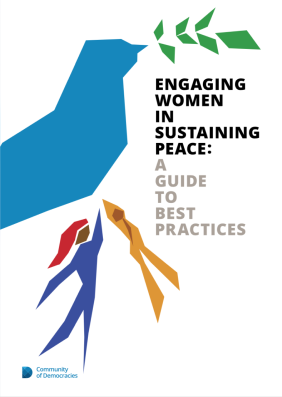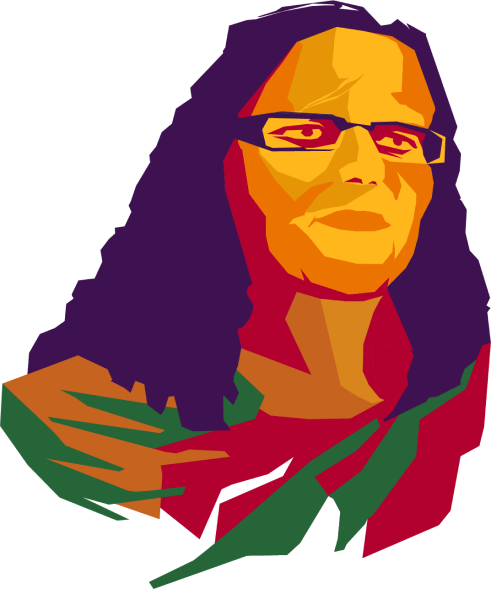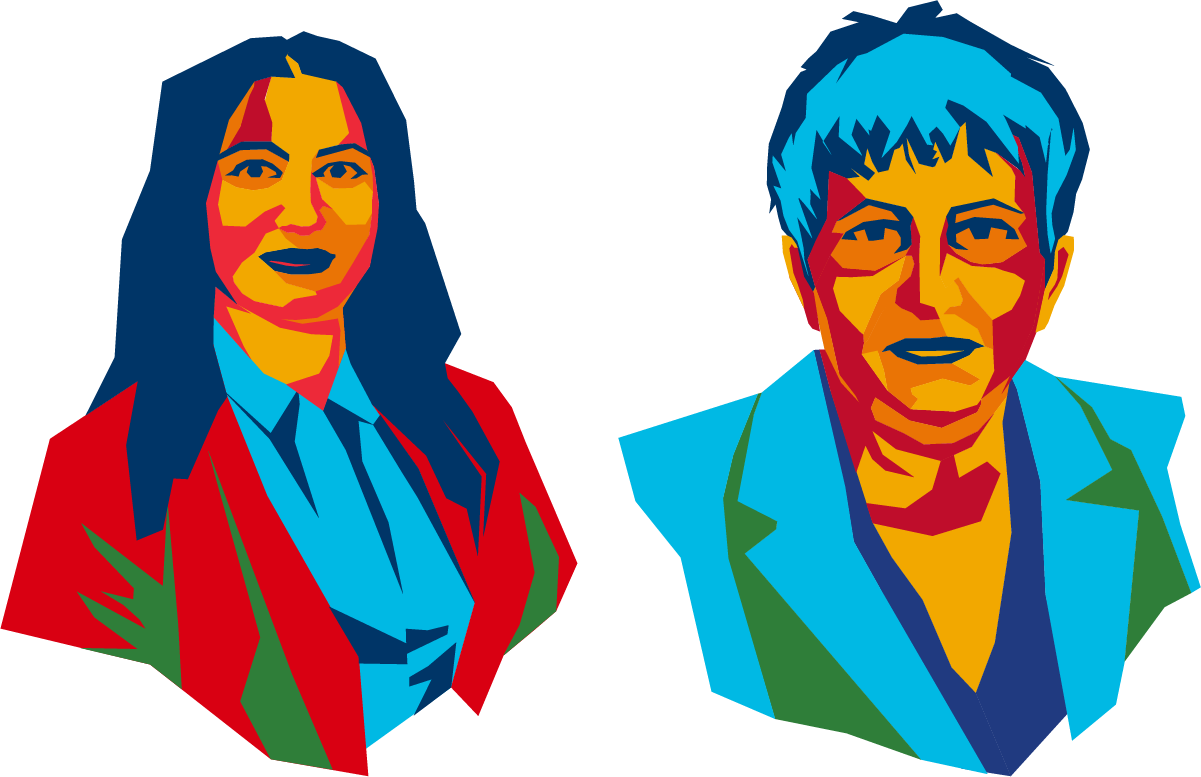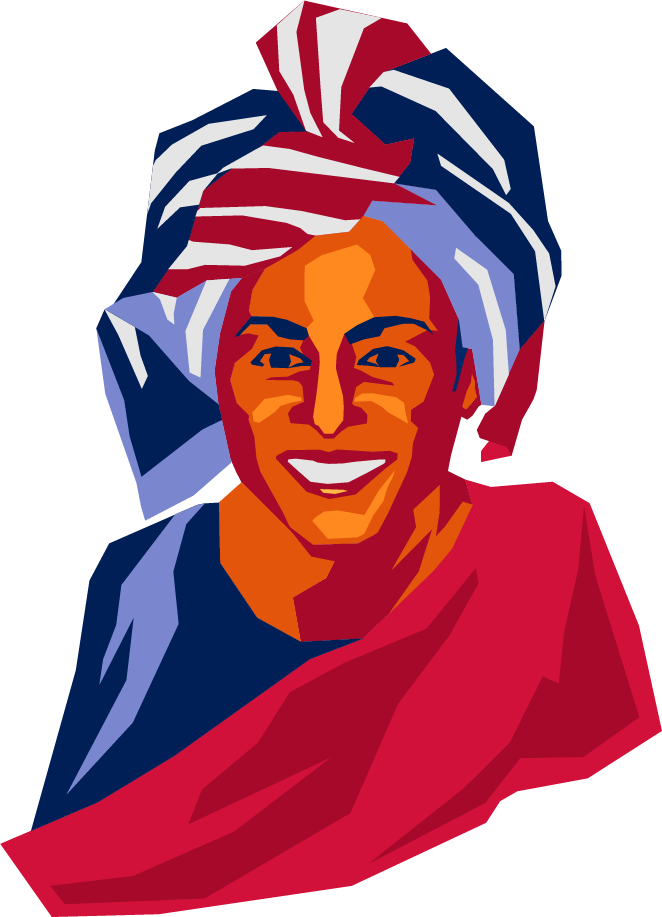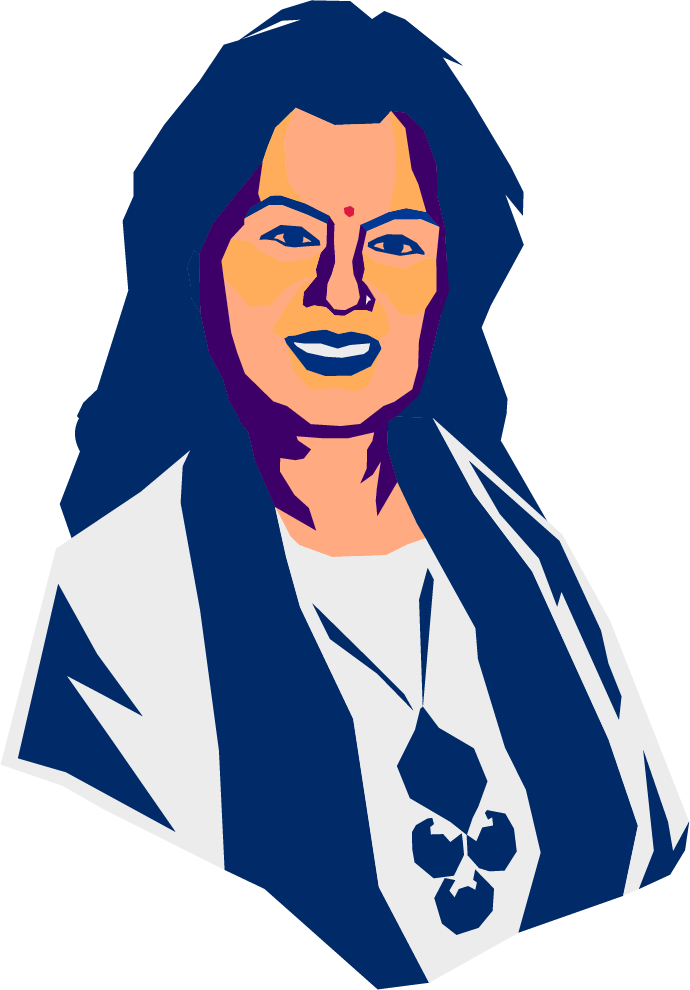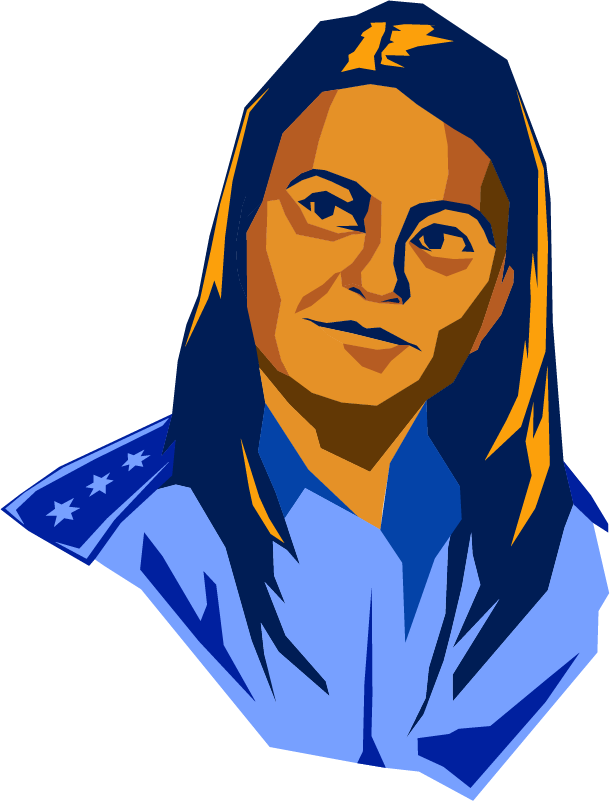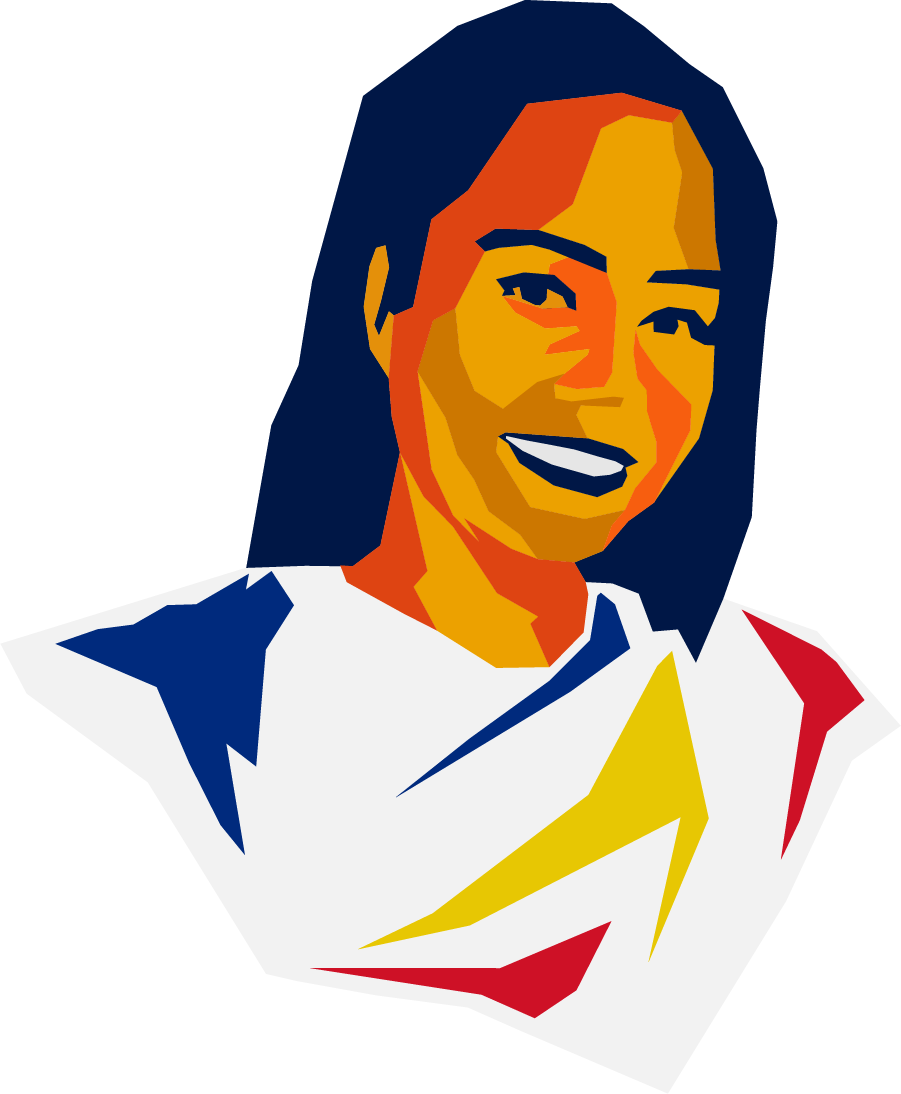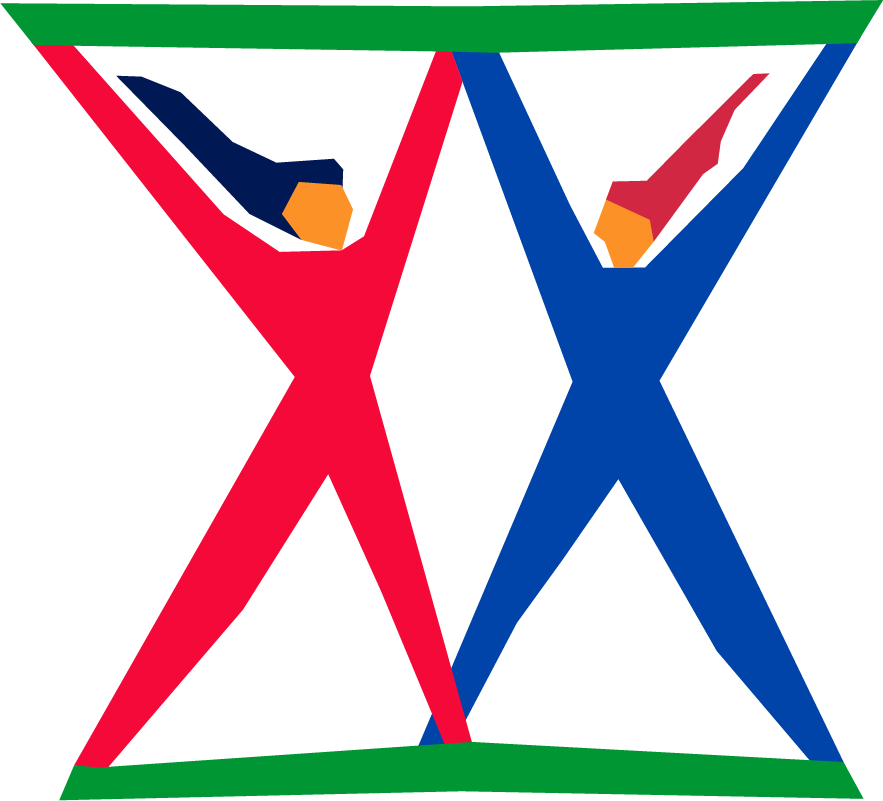Women in Peacebuilding: Liberia
“You have to understand my background to understand my motivation,” says Dr. Yvette Chesson-Wureh who refers to herself as the member of the April 22nd Group. “Following the coup d’état on April 12th, 1980, on April 22th my father (the Minister of Justice) was executed with 12 other members of the Cabinet. We, the descendants of these men, have come together and call ourselves the April 22nd Group to support reconciliation and healing.”
From the outset of the civil war in Liberia, she and others in the diaspora living in the United States saw the need to take the lead to organize a strong advocacy campaign. Their goal to influence and inform US foreign policy had the objective to support the realization of peace either by having “boots on the ground” to stop the civil war or support the transition to a democratic government: “That is when my serious journey started. We have come back to make a difference, not just for ourselves, for our fathers’ legacy. As part of the April 22nd Group, I returned to Liberia at the time when Ellen Johnson Sirleaf started running for office in 2004.” Ellen Johnson Sirleaf was subsequently elected in 2005, becoming the first African woman elected as a head of state.
An important mentor in advocacy in America to Dr. Chesson-Wureh was Dorothy Height, president of the National Council of Negro Women. Another mentor was politician Ruth Sando Fahnbulleh Perry. Perry made history in August 19961https://www.sahistory.org.za/dated-event/ruth-perry-elected-lead-liberia-thus-becoming-africas-first-female-head-state when she became the first woman unanimously elected at a meeting of West African heads of state to become the third chair of Liberia’s ruling council. Perry became head of the transitional government, thereby making her Africa’s first woman to act as head of state. Perry was mandated to execute the daunting task of leading the country from a devastating seven-year civil war to peace under a sub-regional plan of the Economic Community of West African States (ECOWAS). Although serving in a non-partisan capacity, Perry was a member of the National Democratic Party of Liberia. She was the leader of Liberia from September 1996 until August 1997.
After eleven international peace attempts between 1990 and 1995 to end the civil war in Liberia, the 1996 effort appeared to succeed. The interim Council of State consisted of a civilian chair, as well as members of warring factions: Charles Taylor2The signing of a final peace agreement in August 1996 was followed by an election on July 19, 1997, in which Liberians voted to implement the agreement and overwhelmingly selected Taylor to lead the post-conflict government. who had led the National Patriotic Front of Liberia, United Liberation Movement of Liberia for Democracy-K leader Alhaji Kromah, Liberia Peace Council leader George Boley, and two other civilians.
Perry became the first female president of Liberia and of contemporary Africa as a whole, and the elected Chairperson of the six-person Council of State of Liberia—an interim arrangement preparatory to the election of the first President of Liberia since the civil war commenced in December 1989. Madam Perry was the only woman among the six-person Council, so it is evident that hers was not an easy task. “At the time, Liberia was factionalized and led by war-lords. At the meeting in Abuja each faction brought women as members of their factions. I was part of the lobbying calling for a woman to take the political helm to lead Liberia back to civilian led democracy,” explains Dr. Chesson-Wureh, who Perry called on as soon as her appointment was announced.
Their collaboration began with developing a consolidation strategy of bringing women leaders from the different factions together as part of the broader peace and reconciliation process and the roadmap to the elections. “We were (still) in Abuja and we brought together all the women from the various factions. We started with an open agenda enabling the women to speak their mind.”
Perry listened and then addressed them, assuring that she would always be accessible. Dr. Chesson-Wureh notes, “This woman was extraordinary in how she was able to bring the warring factions together. She made great personal sacrifices. Sometimes her funds would be cut off. She would have no fuel. So, from time to time, we fundraised in the United States so that she would have funds, so that she could take a stand based on her principles, for Liberia.”
As a political leader, Perry participated in women’s initiatives to provide relief for war victims, especially women and children, elderly and physically challenged. She was the architect of the Liberia National Conference, which outcome eventually led to the formulation of the disarmament agenda and holding of the 1997 elections. One outstanding group that helped Perry during those turbulent years was the Women in Peace-building Network (WIPNET), which mobilized women in the early days of Liberia’s civil war.
By 1993, WIPNET started to attend peace talks. The efforts of Perry and these women groups reveal how well-coordinated grassroots movements can establish more inclusive peace-building practices. Madam Perry and WIPNET, headed by another dynamic woman leader, Mother Mary Brownell, succeeded in bringing peace with the 1996 peace agreement and the 1997 election, though these were short-lived. War resumed in 2000, and WIPNET intensified its efforts to mobilize women to call for peace. Perry was in the center of it all.
Perry steered the ship of state for nine months and on August 2, 1997, Council of State Chairman Perry peacefully handed power over to newly elected President Charles Taylor. Many agree that Perry’s astute stewardship paved the way for the ascendancy, eight years later, of Africa’s first elected woman president, Ellen Johnson Sirleaf.
Dr. Chesson-Wureh continued to keep her pulse on the ground as transitions continued: “I heard from mothers that they overwhelmingly were going to vote for Ellen (Johnson Sirleaf) because they knew children needed to be educated. Ellen was putting an emphasis on educating their children, and they knew education was a way out of poverty.”
The Colloquium
The election of Ellen Johnson Sirleaf was marked with a host of celebrations and an epiphany for Chesson-Wureh who saw that the future for a new generation of women’s leadership required education and mentoring for young women who were growing up in post-conflict Liberia. By the time the celebrations were over, Liberian women and members of the international community met in Monrovia where more than 75 women leaders assembled and agreed to collaborate.
This collaboration found form in the International Colloquium on Women’s Empowerment, Leadership Development, International Peace and Security (Colloquium) held in 2009 in Monrovia, Liberia.
“That was how the International Colloquium was born. Liberian women initiated it and it also came from women of the world. That was how we moved forward together,” explains Dr. Chesson-Wureh, appointed as the convener of the Colloquium. “We were organizing in a post-conflict country where there were no hotels, no infrastructure for conferences. I got on national radio and called on the people of Liberia to help me host the women of the world who were coming for this meeting.” People responded and with the assistance of the UN system, home-stays were organized, ensuring there was running water and electricity and beds.
The Colloquium was an extraordinary event, the first in twenty years. Amongst the 2000 women from across the globe were Head of States and Government leaders, as well as high level representatives from inter-governmental organisations including the United Nations.
Named in honor of Liberian diplomat and jurist, Angie Elizabeth Brooks, the first and only African woman president of the United Nations General Assembly to date, the Angie Brooks International Centre (ABIC)3https://angiebrooksintlcentre.org/about-us/ was a concrete outcome of the Colloquium. By honoring Angie Brooks, the Center also honors women’s leadership worldwide. ABIC is also committed to ensuring that its activities involve the promotion of, and nurturing of Africa’s next generation of leaders, both males and females. The Centre promotes Women’s Empowerment, Leadership Development, and International Peace and Security throughout Africa. Consistent with its mandate to support the decisions of the Colloquium in line with United Nations Security Council Resolution (UNSCR) 1325, among others, the Centre actively engages in women’s involvement in peace and security in Liberia and across the African region.
Another important mentor for Dr. Chesson-Wureh supporting her in the realization of the vision of the ABIC was the Honourable Olubanke King-Akerele, Liberia’s former Minister of Foreign Affairs & former Minister of Commerce & Industry who co-chaired the Colloquium. As the current Chair of the Board of the ABIC, she contributes her experience of more than 25 years in the United Nations to provide valuable guidance and connections in both policy and fundraising opportunities: “Many of ABIC’s accomplishments could not have been achieved without her input. She is a giant in her own right, an author, and well known in the UN system as she has headed several African countries’ offices in the UN. She was with me the day I had the epiphany about the colloquium, and it was her idea to put it into motion and do something about it immediately. She is a self-starter and is fervent about implementing great ideas,” says Dr. Chesson-Wureh.
The Women’s Situation Room
“In 2011, as we headed towards the election, together with the UNDP, we discussed the need for a women’s observer group. But then I wanted something more than just producing observer reports. We set up an intervention.” It became known as the Women’s Situation Room (WSR). “The WSR is a real-time and progressive process that works with communities in advocating, mediating and intervening in violent and tense situations during elections in countries where it’s situated,” says Dr. Chesson-Wureh.
Following the 2011 elections in Liberia, the WSR format has since been successfully replicated in Ghana, Nigeria and Uganda. According to WSR organizers, situations could differ in individual countries, so the concept is adaptable to suit local conditions. As a result of its demonstrated effectiveness in preventing and mitigating election-related violence in Liberia, the WSR was adopted as a best practice in Africa at the African Union Summit in January 2012.
“We have had over 5000 WSR elections observers in our countries of replication” says Dr. Chesson-Wureh. The WSR observers, who are mobilized to hotspots, have contributed to resolving reported electoral violence incidents or threats in real-time. They held fruitful meetings with the major political players, including then Prime Minister Raila Odinga, Kenya, and media stakeholders, on the need for peaceful electioneering. However, the organizers conceded that there was a need for more time to train volunteers on the peace process, particularly the peer-to-peer dialogue against violence among youth.4https://www.un.org/africarenewal/magazine/april-2015/women%E2%80%99s-situation-room-africa%E2%80%99s-unique-approach-reducing-electoral-violence
Despite the successes, the challenge is consistent resourcing for the WSR activity throughout the election cycle, says Dr. Chesson-Wureh: “We don’t have any dedicated funds for the situation room. Each time we have to make the case, even though the Security Council has recognized that the Situation Room as one of the best mechanisms for peace and security. It is stressful, because we need the funding even before the mission starts.” She is already planning the next WSR for the elections scheduled in Ghana in November 2020.
In November 2019, Dr. Yvette Chesson-Wureh was elected Co-chair of FemWise-ECOWAS, sharing the decision-making role with Ms. Alice Goza of Togo, who represented young women of ECOWAS. According to the UN Chronicle online portal, the insufficient participation of women in formal conflict prevention and at the peace table is an essential area of UNSCR 1325 that remains poorly implemented. The significant contribution and substantial role of women in local mediation and conflict prevention initiatives continue to be mostly unrecognized and weakly supported. FemWise is a network of African Women in Conflict Prevention and Mediation established in July 2017, as an African Union initiative. The AU is the ultimate governing body via the AU Panel of the Wise. FemWise provides a platform for strategic advocacy, capacity building and networking aimed at enhancing the implementation of the commitments for women’s inclusion in peacemaking in Africa. FemWise also believes in a strong mentorship program so the youth can be represented at all levels of leadership. FemWise-ECOWAS is the regional dimension of this broader network.5https://angiebrooksintlcentre.org/cllr-chesson-wureh-elected-co-chair-of-femwise-ecowas/
Dr. Chesson-Wureh stresses that resourcing is vital: “This work is the essence of 1325 mainstreaming. ECOWAS must have women in the budget. They must not expect women to fundraise for our activities. We are fifty-two percent of ECOWAS. We must be integrated into the budget of ECOWAS.”
She says, beyond the resourcing commitment her focus is also on ensuring that all ECOWAS peace missions include women. “It must now be automatic. We have the database,” she says describing how now it is easier to identify specific skill sets of women mediators for missions from those who have the experience of engaging with the security sector to civil society.
The work today augurs well for Dr. Chesson-Wureh’s 10-year vision for Liberia and the ECOWAS region. “In 10 years, I would like to see more women at the helm of more of these organizations, because I truly believe women change the nature of society. I would like to see women at the peace table continuing to mediate in stopping war. We must have women’s representation in everything we do.”
Her recommendation is clear. Establish a specific fund for women’s representation that will assist women in their aspiration for political office providing training and mentoring and ongoing support.
The investment in sustaining peace and preventing the resurgence of conflict and violence in Liberia requires an investment in young women now: “We cannot do it without formal and informal education. We need to be nurturing those young women now!”
source links:
- www.sahistory.org.za
Ruth Perry is elected to lead Liberia - The signing of a final peace agreement in August 1996 was followed by an election on July 19, 1997, in which Liberians voted to implement the agreement and overwhelmingly selected Taylor to lead the post-conflict government.
- www.angiebrooksintlcentre.org
The Angie Brooks International Centre (ABIC) - www.un.org
Women’s Situation Room: Africa’s unique approach to reducing electoral violence - www.angiebrooksintlcentre.org
Cllr. Chesson-Wureh Elected Co-chair of FemWise ECOWAS
The story of Dr. Chesson-Wureh of Liberia speaks directly to women’s representation in post-conflict governance, a fifth commitment from the UN Secretary General seven-point action plan for gender-responsive peacebuilding (2010). Based on desk research conducted on post-conflict countries across the world, the Community of Democracies’ publication on “Engaging Women in Sustaining Peace: A Guide to Best Practices” distils seven commitments outlined in this action plan and identifies good practices and lessons learned in engaging women in peacebuilding.




 go back: about
go back: about
